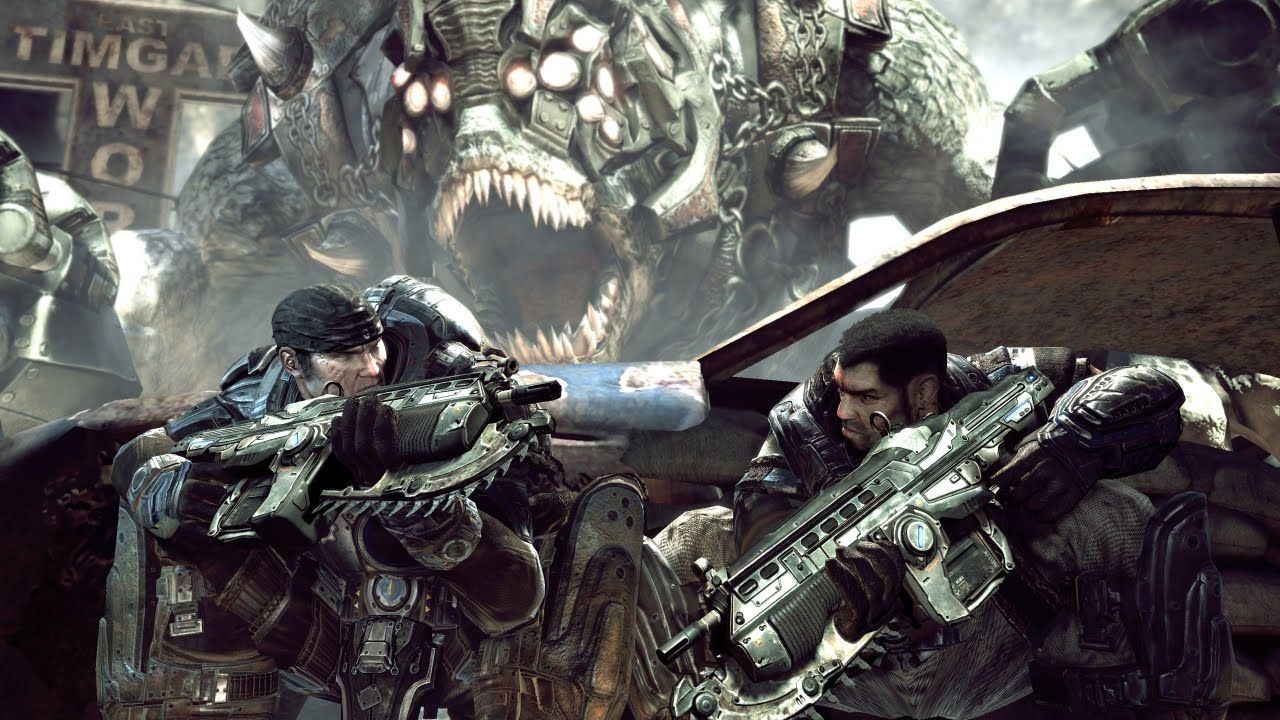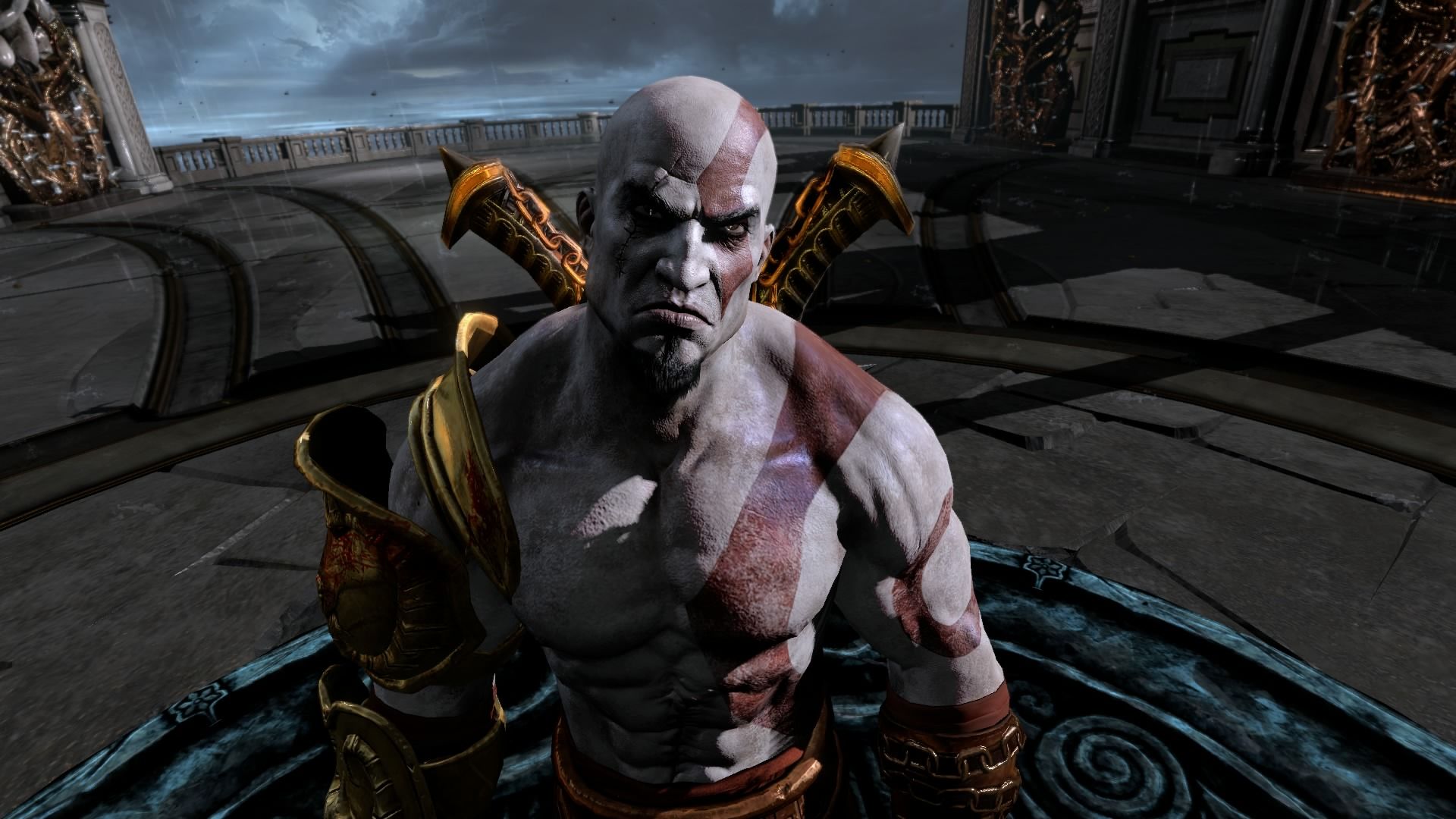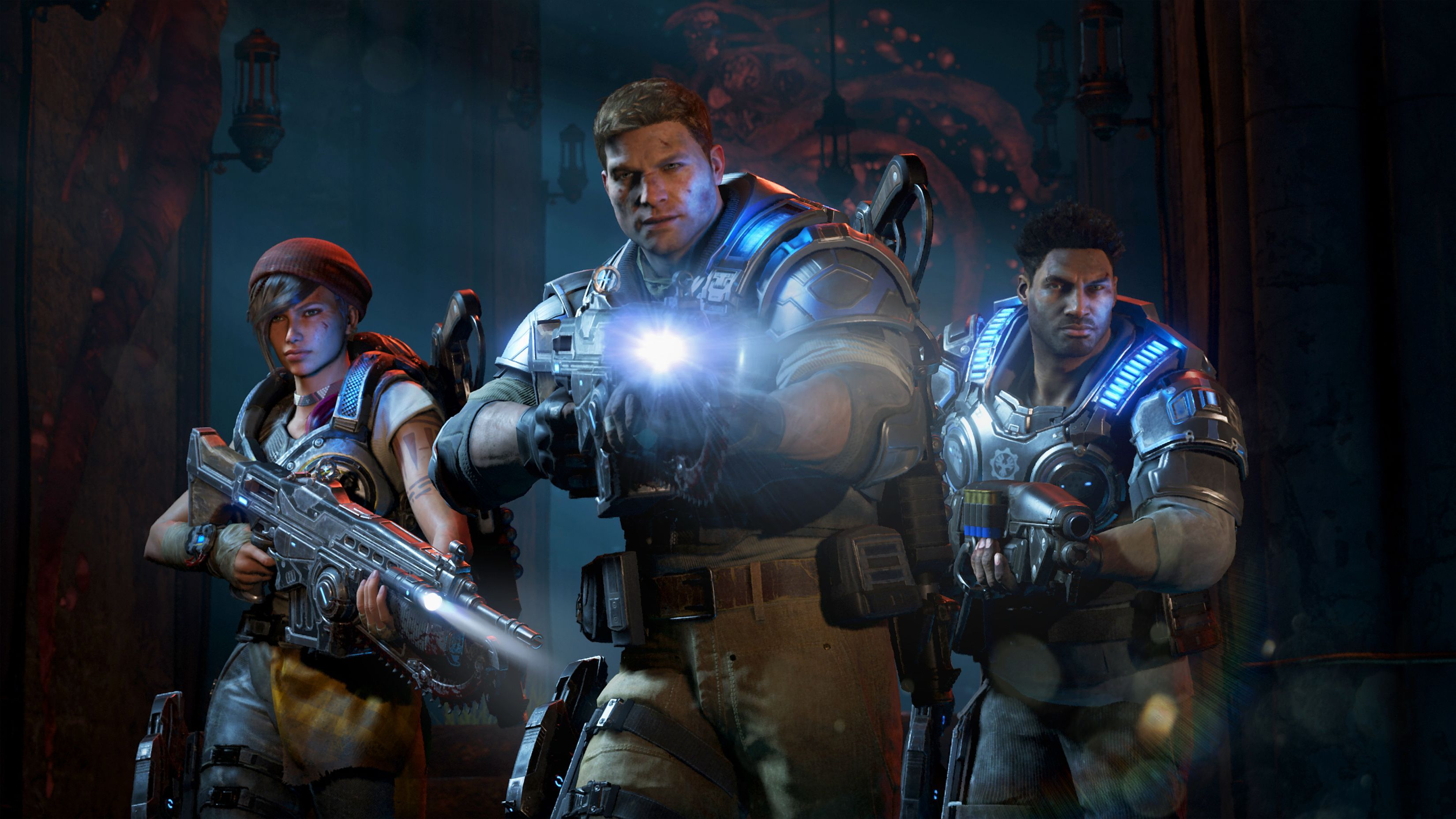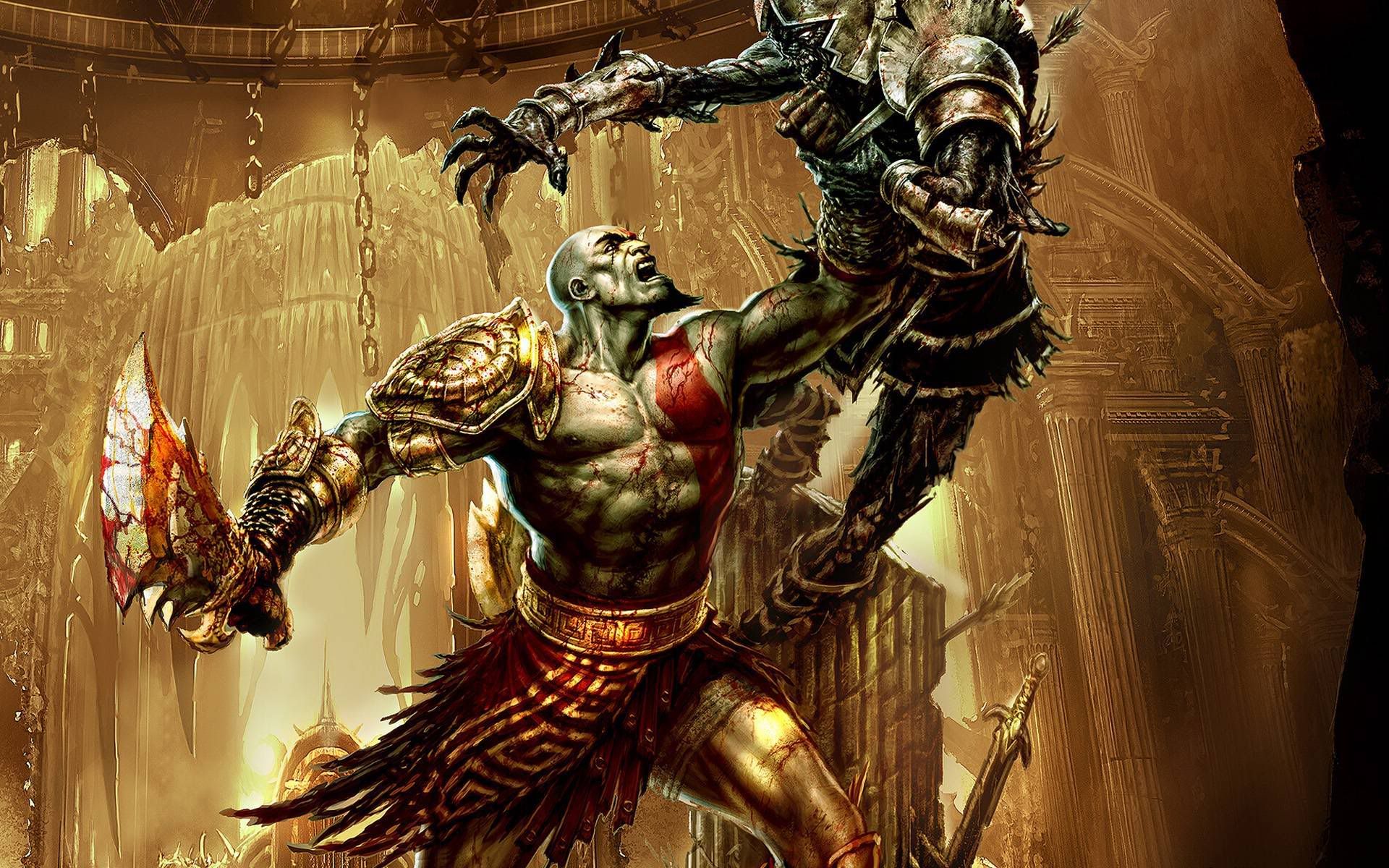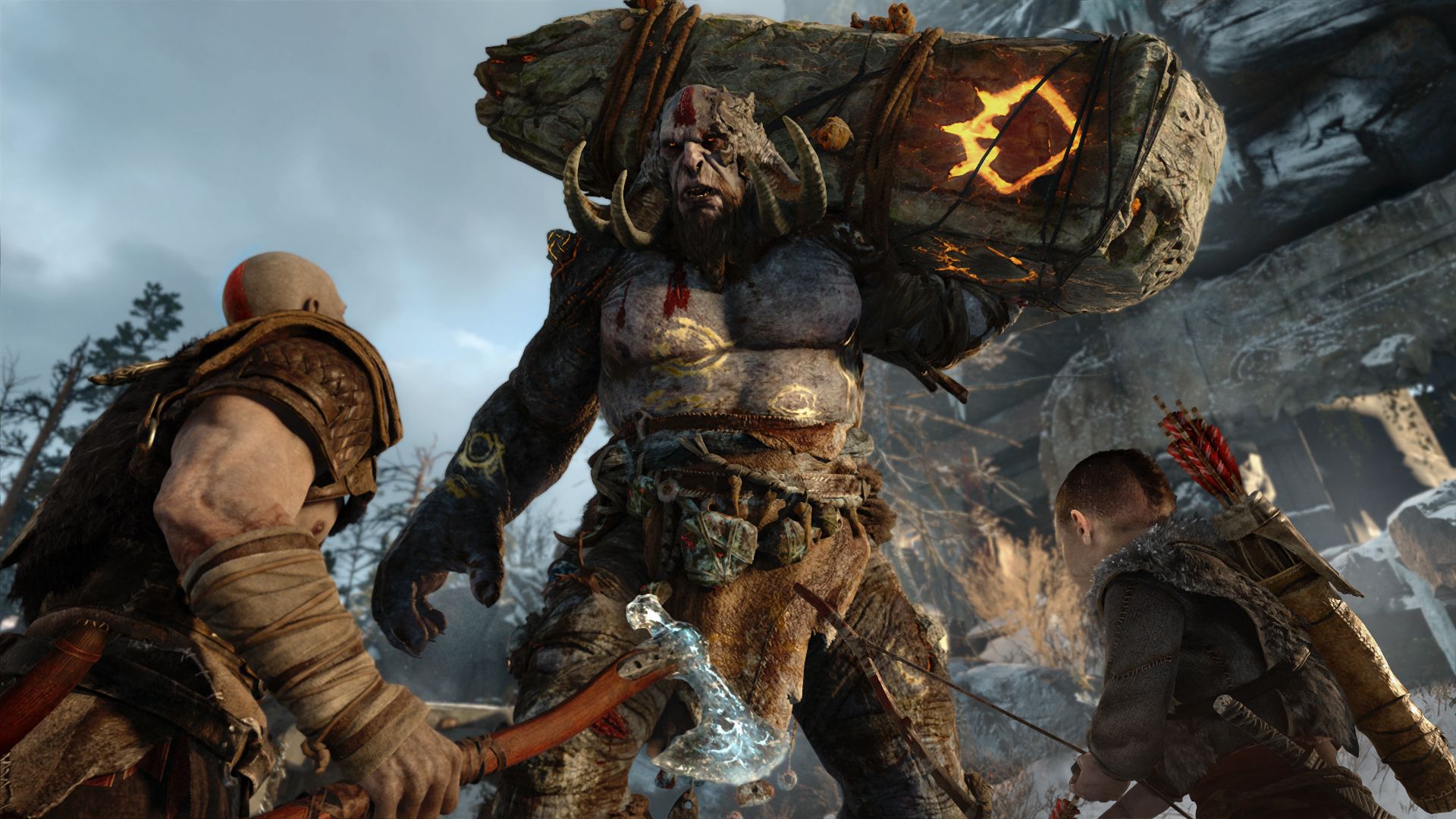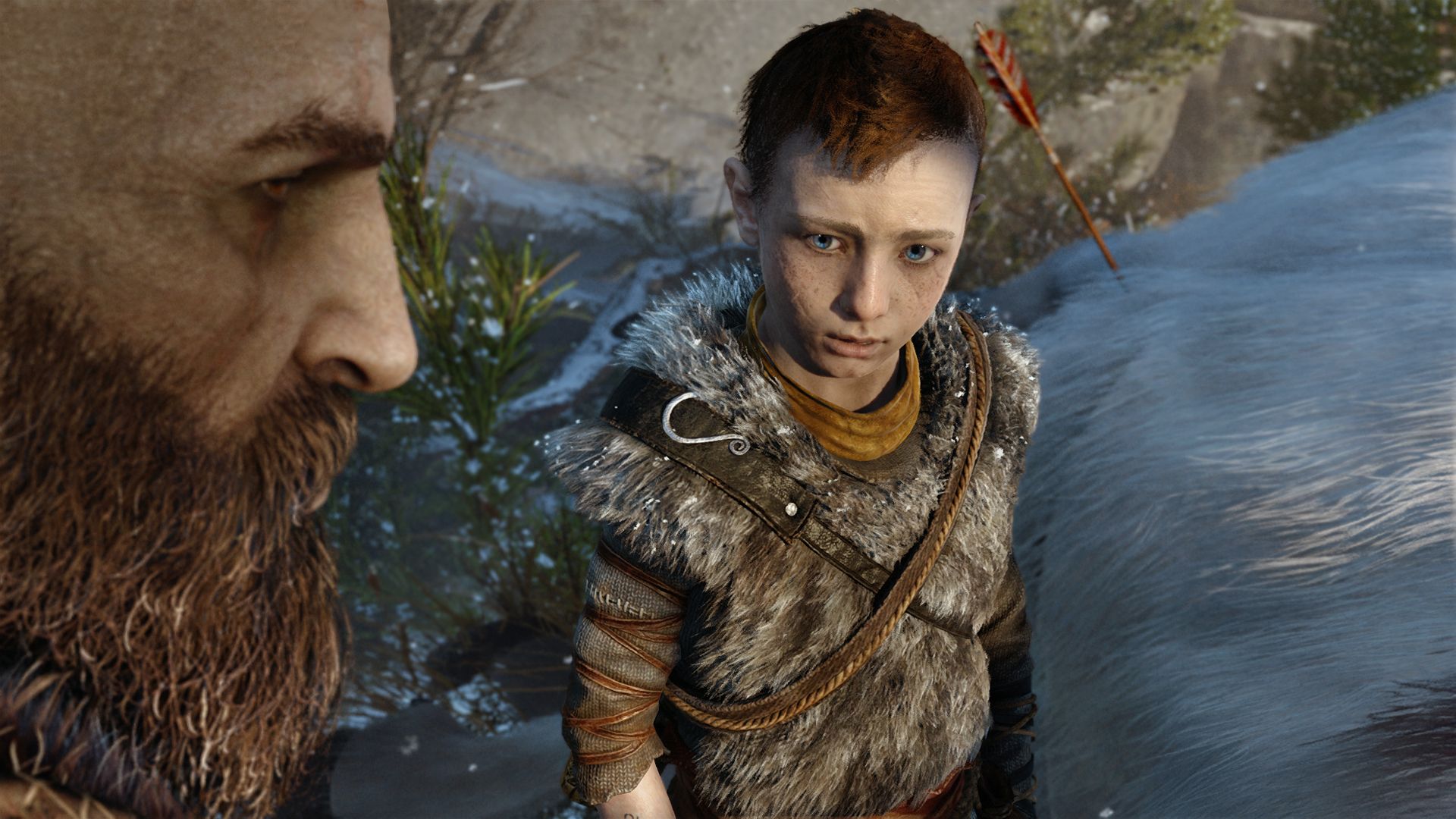For over a decade, gamers have gotten to know God of War's Kratos as a vengeful demigod on a rampant journey of destruction and revenge. Likewise, Gears of War's Marcus Fenix has led the charge for humanity's survival against the impending Locust hordes, with a chainsaw-toting Lancer in hand, the physique of a champion bodybuilder, and a voice that sounds like he eats nails for breakfast.
Aside from sharing a similar acronym, both God of War and Gears of War have not only been some of the most prominent franchises for their respective platforms, but in particular they've shared a certain affinity for going "big." As players have taken on the roles of Kratos and Marcus Fenix across numerous games, so too have they had the chance to empower players and offer big, bravado gaming experiences.
Whether it's been using the Lancer to rip enemies in half or literally ripping enemies in half with Kratos' immeasurable power, both series have been known (and some might say "infamous") when it comes to being over-the-top and purely visceral experiences. Since the debut of God of War in 2005 and Gears the year after in 2006, both series have become synonymous in helping to define big, AAA experiences on consoles, while at the same time almost veering on the point of self-parody with their overt emphasis on extreme violence and big, brawny action sequences.
As both series have now crossed the ten-year mark, this year at E3 2016 viewers were given a look at what the future holds for both Kratos and Marcus Fenix in ways both expected and unexpected. As expected, Microsoft's press conference brought us another look at its upcoming Gears of War 4 as its marquee title for the holiday season. Likewise, Sony brought out the big guns, so to speak, with the reveal of a brand new God of War coming to the PS4, and the long-awaited return of Kratos -- one of its most prominent (and popular characters).
However, it was unexpected that each of the games are now sharing more than just a common interest in bringing players the latest in high-definition graphics and visual fidelity, and surely more explosive (and bloody) action sequences than ever before. In particular, Gears of War 4 and God of War are also showing something else: signs of maturity, and signs of looking for deeper, more meaningful stories that go far beyond revenge, saving humanity, and bloodshed.
As many on social media had joked by calling this the year of "Dads of War" (and appropriate given it being Father's Day this past weekend), both Gears of War 4 and God of War have shown in their latest trailers that the series are moving into very different directions than when they last left off. With both being some of the biggest franchises on PS4 and Xbox One respectively, it's hardly a surprise that we would be getting fourth installments for both of the "of War" games; however, I think what is the most surprising about both God of War and Gears are the ways they are taking their series in new directions.
In the case of Gears of War, the fourth main installment in the series is taking the action over two decades past the conclusion of Gears of War 3, where Marcus Fenix helped to steer humanity away from the brink of extinction. Flashing forward, players will now take on the role of his son, J.D. Fenix, that is following in his footsteps (both literally and metaphorically) to ward off a new threat that has arisen in the aftermath.
While Gears has mostly been concerned in the past with providing a brutal and stunning experience for players, it hasn't solely been without infusing some heart and emotional moments into its narrative: it's mostly accomplished this on both the macro and micro scales. Between its larger plot of humanity looking to survive the Locust threat, the games have also laced smaller stories of humanity (more so in the later games than the original) to bring some depth and dimension to Marcus and company, from Gears of War 2 giving us Dom's search for his wife, Maria, to the exploration between Marcus and his own father in Gears of War 3.
However, with Gears of War 4, the reveal that Marcus Fenix seems to be making an appearance in the game certainly took me by surprise. The previous trailers (I felt) had given an indication that the action would be taking place long after the death of Marcus Fenix, showing us instead the "legacy" that would be carried on by his son, J.D. However, with the latest demo at E3 showing that instead Marcus is alive and well, my hope is that Gears of War 4 will utilize his appearance to tell a more engaging and intimate story than we've seen from Gears of War in the past.
How will the legacy of Marcus impact J.D.'s role in the latest threat against humanity? Will we see J.D. longing for reconciliation between him and his father? Hopefully these are questions that get explored in Gears of War 4, and given that we've played as and known Marcus for three games now, I'm hoping that having the perspective of J.D. will give us a much more personal (and different) look at the legendary Marcus Fenix.
As a tale that was built on the foundations of bloodshed and revenge, God of War has long been rooted in the motivations of Kratos seeking the blood of those that contributed to his family's death, and seeking redemption of his own for being responsible for it. However, emotional storytelling has largely taken a backseat to the sheer spectacle that God of War has offered, whether it's been in Kratos taking on gods and entities several hundred times larger than him, or the sheer scale of the locations and vistas he has traveled to.
While the series hasn't been completely without some exploration of Kratos' backstory (such as the relationship between him and his brother, Deimos, in God of War: Ghost of Sparta), the main emotional motivation for Kratos throughout the series -- killing his own wife and daughter -- I felt had started to become repetitive and overdone. As much as the thought of having your own wife and child killed by your own hands is both horrifying to think about and unbearable to witness, that emotional hook to Kratos' search for revenge felt diluted and lost its meaning after the dozens of gods, heroes, and otherworldly beings that Kratos has destroyed across six games.
That leads to the wonderful surprise that was in store when watching the official reveal of God of War at Sony's E3 2016 press conference, which not only showed us a very different take on the series itself (by transitioning from Greek to Norse mythology), but also in showing us a very different take on Kratos himself. From his initial appearance coming out of the shadows in the gameplay trailer at E3, we've been shown a much older, more restrained Kratos, and a bit of a flip compared to what we've seen of the dynamic in Gears of War 4 between Marcus and J.D.
Aside from its switch to Norse mythology, the other most apparent change coming to God of War is the introduction of Kratos' son (who is still unnamed at this time). Instead of a son looking to live up to his father's legacy like that of Gears of War 4, God of War seems to be focusing on the dynamic of a father seeking to provide both knowledge and support for his son, both in its storytelling and down to its gameplay.
I had joked during the Sony E3 press conference that within the 10-minute demonstration that Sony offered of its latest take on God of War, Kratos had shown more emotion and humanity in that demo than within all of six games. I meant that as a light-hearted dig -- not that I hate God of War by any means, but had always felt its attempts at trying to provide more meaningful storytelling were generally undone by the series' emphasis on action and spectacle over everything else.
Luckily, I was more than willing to eat my own words after having seen the E3 demonstration for God of War, not only for its sheer beauty and detail, but also for really feeling invested in Kratos as a character: maybe for the first time ever. As much as I've enjoyed the spectacle of seeing Kratos pummel gods and disembowel mythical creatures, it was even more enjoyable to see him evolve and develop into a deeper, more sympathetic person. Seeing how easily he was able to defeat a Nordic troll during the demo was satisfying on a visceral level, but also seeing how he struggled to pat his son on the back and relate to him on an emotional level really allowed me to connect with and see Kratos on a wholly different level than any of the previous God of War games.
While both Marcus and Kratos are now sporting beards and appear much older (and hopefully wiser) than before, the introduction of these two characters as fathers and men seeking to understand (and respect) their children is yet another funny coincidence in two series that I've always felt shared some striking similarities, despite their differences. Yet as satisfying as it was to see the return of Marcus Fenix in Gears of War 4 or Kratos rise from the shadows in God of War, the promise of new installments in both of these franchises was something that at this point was pretty much a given and expected.
What I didn't expect was to see that so too have God of War and Gears of War grown up, much like their respective grizzly, violent men with violent pasts. As much as I've enjoyed seeing Kratos and Marcus rip their enemies to shreds in battle, with the direction that both Sony Santa Monica and The Coalition are taking these series in, I'm excited more than ever that, maybe for the first time ever, I'll find reason to sympathize with them beyond just bloodshed and revenge. Instead, I'm excited not only to find the more human stories behind an immortal demigod and a hardened soldier, but also those of the children sharing their stories.


